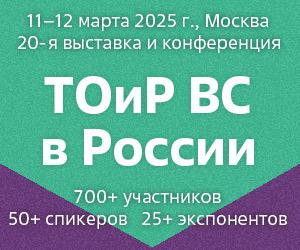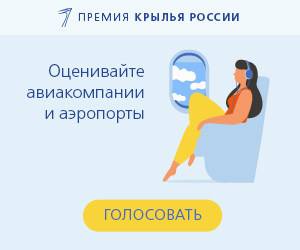Mandatory Expansion
The plans of state corporation Russian Technologies to merge several small government-controlled air carriers into a united airlines Rosavia failed. In early February, Transport Minister Igor Levitin received approval of Prime Minister Vladimir Putin to transfer Rosavia’s assets to Russia’s biggest air carrier Aeroflot and thus tasked the airlines to optimize government assets in the civil aviation sector.
Aeroflot will receive assets of several airlines that belong to Russian Technologies now: Rossiya, Orenair, Vladivostok Air, Saravia, SAT Airlines and Kavminvodyavia. The state corporation received control over these assets and AirUninon alliance in 2008. After demise of the alliance in the same year, head of Russian Technologies Sergey Chemezov announced that a united airlines would be established on the basis of AiRUnion and aviation assets belonging to the corporation. The future carrier was positioned as a competitor to Aeroflot.
Naturally, the Russian government was discontent with existence of several airlines belonging to it that differed very much in size, geography of flights, the fleet, financial results and efficiency. The standard scheme of governance through state representatives in the board of directors who voted in especially important cases according to directive of the government evidently did not justify itself. It was proved by the bankrupted AiRUnion where the government representatives constituted majority in the boards of directors of the biggest participants.
After the AiRUnion member-airlines were declared bankrupt, Russian Technologies tried to attract the Moscow city authorities as a partner. Moscow expected to get additional passengers for its Vnukovo airport and also planned to contribute its Atlant-Soyuz airline and additional investments to the project. By autumn 2009, the negotiations came to a dead end and Moscow quit the project. By the end of the year, Russian Technologies’ airlines found themselves in a disheartening financial condition. To save the biggest of them, St. Petersburg-based Rossiya, from bankruptcy the government had to issue a direct budget subsidy worth 3.9 billion rubles ($130 million) in December.
At the next stage the idea was transformed into a merger of the Russian Technologies’ aviation assets with one of the largest domestic carriers. Aeroflot, S7 Airlines and UTair were considered as possible options. The government finally approved the merger with Aeroflot, proposed by the Transport Ministry.
For its aviation assets Russian Technologies will receive a part of the 25.8% shares of Aeroflot that the airline will buy out from its largest private shareholder, National Reserve Corporation (NRC). Which part of this stake will be handed over to the state corporation will become clear after assessment of the carriers that it controls.
The carriers received from Russian Technologies are likely to become subsidiaries of Aeroflot preserving their legal entities, brands and certificates of operators. Such quite conservative approach eliminates some obvious concerns that have appeared during the discussion of the Rosavia establishment with a unified certificate of operator: what is to be done to the governance systems of various air companies, their commercial rights, route networks, IOSA audit etc.
After acquisition of the new assets Aeroflot will seriously increase its share on the Russian air transport market. In 2009, Aeroflot group together with the six airlines to be transferred to it transported more than 17 million passengers that would have been almost 38% of all passengers carried by the Russian air carriers. But, according to Transport Minister Igor Levitin, the merger complies with the antimonopoly requirements.
Ссылки по теме
- Для того, чтобы оставить комментарий, не привязанный к социальной сети, войдите или зарегистрируйтесь на нашем сайте.
CIS & Russian Aviation News And Insights
- Aeroflot posts first full year profit since pandemic
- Rosaviatsiya: Russian airlines’ passenger traffic to decline in 2025
- Aeroflot promotes initiative towards harmonization of Russia’s continued airworthiness system with international standards
- Russia’s Smartavia passenger traffic decreased by 6.7%
- Russian airlines 2024 traffic exceeds the pre-sanctions level
- Russia’s Ural Airlines passenger traffic fell one per cent short of pre-crisis levels
- Aeroflot continues regional hubs development
- S7 Airlines stays in Top-3, despite GTF challenges
- Aeroflot 2024 traffic growth exceeds the Russian industry average three-fold









